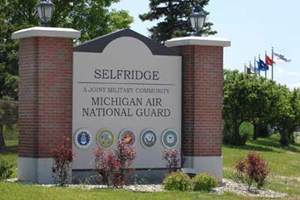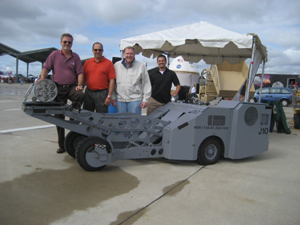Synthetic Fuels Testing
VSE’s Advanced Technology Division is heavily
involved in alternative energy projects for a variety of
government customers ranging from the Department of
Energy to the Federal Transit Administration. Led by a
fuels and lubricants Ph.D. and a former Director of the
National Automotive Center, the Alternative Energy Group
within VSE has tackled a number of government test
programs to validate the use of synthetic fuels and
lubricants.
I was brought in to assist with several VSE programs
centered on the testing and validation of a synthetic
diesel fuel created by the Fischer-Tropsch process. The
Fischer-Tropsch process involves the creation of a clean
burning diesel fuel that can be made from domestic
resources such as coal or biomass. Throughout World War
II, the Germans pioneered the use of Fischer-Tropsch
fuel to support their war effort and South Africa would
later use Fischer-Tropsch fuel to run their country
during the international oil embargo that was meant to
end apartheid. Due to the abundance of coal that can be
found in the US and the rising cost of crude oil
throughout the world, Fischer-Tropsch produced fuel
might actually hold the key to breaking our country’s
dependence on foreign oil.
The Alternative Energy group within VSE has extensive
experience supporting synthetic diesel fuel test
programs by conducting laboratory engine analysis and
real world testing. I was brought in to assist in
conducting several military demonstration tests using
Fischer-Tropsch fuel to certify military ground assets
and base infrastructure on the use of this new fuel, as
well as documenting the test procedures and
demonstration progress in the form of a series of
technical deliverable reports and live briefings. I
worked directly with representatives from the US Air
Force bases that participated in these test
demonstrations including Selfridge Air National Guard
Base in Michigan, Edwards Air Force Base in California,
and Robins Air Force Base in Georgia.
The test demonstration involved working through the Base
Fuels Management Office at each facility to integrate
Fischer-Tropsch fuel in the fuel delivery
infrastructure. Our team researched the appropriate
government policies and procedures necessary to
integrate a new fuel onto a military base and developed
a series of technical reports and training briefings to
describe how this can be accomplished. Once the fuel was
established for use on each base, I worked with the end
users in each department to run the fuel in dedicated
military ground vehicles and ground support equipment.
Data was recorded on each piece of equipment along with
user impressions of the fuel and any abnormal
maintenance actions. All data was summarized in
technical deliverable reports and sent to the US Air
Force to complete the certification process.


